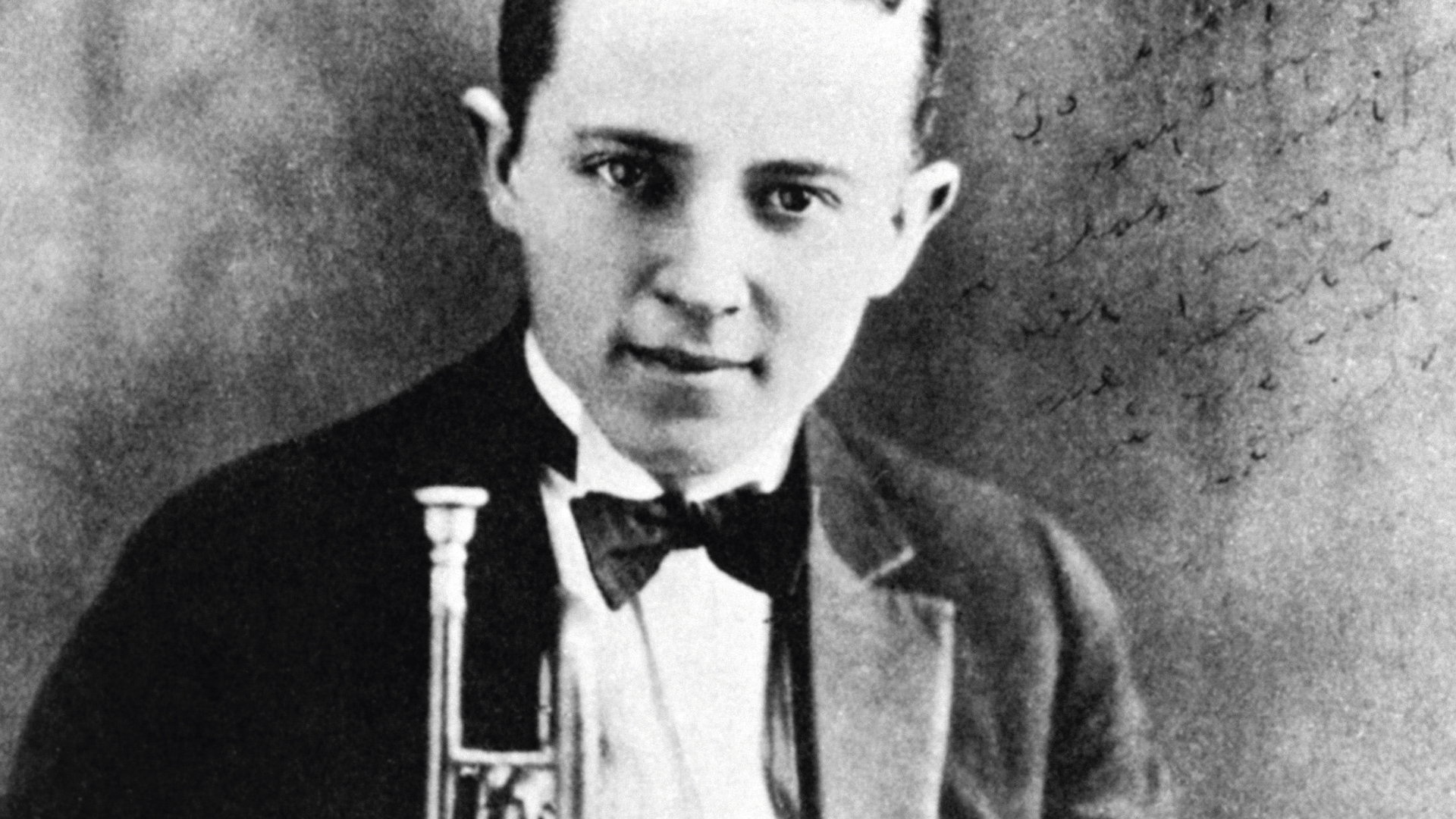In the 1920s, long before John Coltrane, Charlie Parker and Dizzy Gillespie arrived on the scene, a soloist called Bix Beiderbecke was already innovating what we’ve come to know as jazz music. He was one of the first true legends of jazz and played with a clarity and sensuality which turned heads even during that hedonistic era. When Benny Goodman first heard him he wondered “My god, what planet, what galaxy, did this guy come from?” Hoagy Carmichael said his music sent him “reeling on to a couch”. The bandleader Eddie Condon said famously, upon seeing Beiderbecke play live for the first time, “Beiderbecke took out a silver cornet. He put it to his lips and blew a phrase. The sound came out like a girl saying yes.”
Beiderbecke was handsome, charismatic and badly behaved – he pursued a career in music after he was expelled from boarding school for truancy, and performing ‘indecorously’ with his band at a school dance. He joined Paul Whiteman and his Orchestra, one of the most popular dance bands of the era, and his louche stage presence soon made an impact on the speakeasies of America. He is credited alongside Louis Armstrong as revolutionising Dixieland jazz. Unlike Louis however, Beiderbecke’s career was cut short at its apex. He died of alcoholism at the age of 28, giving way to much tabloid hysteria and speculation.
Listening to Beiderbecke now, it takes effort to imagine how scandalised and electrified the audiences of America must have felt upon first hearing him. His playing informed the evolution of jazz, most notably the development of the concept of a jazz soloist. In 2022 his recordings, considering the context of what came afterwards, feels slightly stiff and staid. I enjoy his music very much, but it hardly sounds “like a girl saying yes”.
The fact that his musical impact has faded somewhat made him a perfect candidate for German experimental record label !K7’s Plunderphonia project, the idea being to ‘plunder’ historical sources to create something entirely new. The project began with classical music in mind, but for London-based band Kansas Smitty’s, whose music has always had a modicum of early-20th century jazz running through it, Beiderbecke (along with ragtime pioneer Jelly Roll Morton and even impressionist composer Maurice Ravel) was ripe for the plundering.
Despite the fact that some of the source material is nearly 100 years old, Kansas Smitty’s Plunderphonia is altogether forward-sounding. Drummer Jas Kayser provides a thrumming syncopated backbone to most of the tracks, bringing the sound in step with the current progressive London jazz scene. The band’s leader Giacomo Smith was determined to use themes and samples from the original tracks which represented the soul of the music rather than lifting catchy loops or drum breaks in a way that modern ears are by now inured to. The soul is what counts here – Beiderbecke’s music may sound docile to a contemporary audience but his ‘indecorous’ spirit and the excitement that it brought forth a century ago is what carries through in this plundered take. Other albums in the Plunderphonia series include similar slants on Mozart, Schubert and Debussy, who in their day must have also sounded like they came from another galaxy.
Samples, references, cover versions, reinterpretation – the music of the past is kept in our consciousness by various creative means. But capturing the soul of something is another challenge altogether. Kansas Smitty’s are bringing us a taste of the thrill of jazz at the point when it was being invented, while at the same time reinventing it themselves. They are pushing jazz music forward while paying respect to the short and instrumental career of Beiderbecke.










